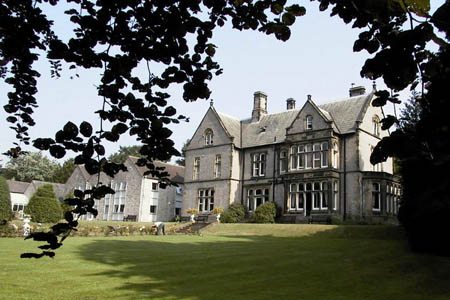Outdoor campaigners are rallying to save a national park learning centre threatened with closure.
Losehill Hall in the Peak District could be shut down if members of the national park agree to the proposal recommended to them.
The centre, at Castleton in the Hope Valley, has an international reputation, according to its supporters, and the park authority admits since the beginning of 2009 it has served 22,500 people, of which more than 17,500 were children.
But authority members are being asked to approve its closure as the Peak District anticipates Government cuts in October’s public spending review, a move outdoor champion Kate Ashbrook described as premature.
Ms Ashbrook, general secretary of the Open Spaces Society and a former board member of the Countryside Agency, said: “We do not yet know the result of the spending review, nor what percentage of saving the park will need to make in the next financial year and beyond. Any decision on the sale of Losehill Hall should wait until we have full information.”
The hall, which offers educational stays to young people, families and outdoor professionals, also hosts conferences and counts among its clients the Ramblers, Open Spaces Society, National Trust, Friends of the Peak District and Ordnance Survey, as well as organisations as diverse as the British Antarctic Survey and Derbyshire Constabulary.
Staff at the centre have expressed their opposition to the plans.
And Michael Dower, a former chief executive of the Peak National Park Authority and the Countryside Commission has written to oppose the closure. He accuses the authority of ignoring staff alternative proposals to team up with a similar or complementary organisation, transfer ownership to a charity, or introduce plans that would make the centre profitable.
Mr Dower says the authority has not given itself enough time to look into these alternative proposals. The park says it wants to save £300,000 by closing Losehill Hall, but both he and Kate Ashbrook contend partners could be found to keep the centre running.
“I believe that the staff are correct in stating that the disposal of Losehill Hall would mean ‘an irreplaceable loss to the delivery of highly valued learning and education provision for the national park’,” he said.
Mr Dower says in his statement to the authority: “Moreover, I remind you of the pioneering role that Losehill Hall had at national and European level. Through that role, it has friends all over Britain and Europe, among whom might well be some who would support a re-thought formula – a partnership or trust – permitting the centre to continue.”
The benefit to the economy in the area was estimated in 1999 to be £2m annually, according to the University of Derby.
Ms Ashbrook said: “I have visited Losehill Hall for a variety of reasons countless times over the past 25 years, and have benefited enormously, and seen others similarly benefit, from the opportunities for national park learning which Losehill Hall uniquely provides.
“I understand that the officers are recommending the members of the Peak District National Park Authority to agree to dispose of Losehill Hall. While I accept the need for the NPA to make significant savings in line with Government requirements, and am deeply sympathetic about the plight in which the park authority, in common with other park authorities, finds itself, I am strongly opposed to the sale of Losehill Hall.”
She continued: “I understand there has been a strong expression of interest in a partnership arrangement with a national organisation which would use the hall in ways similar to the current use, retaining it as a centre for outdoor learning, and thus helping to deliver national park purposes.
“Losehill Hall is of national and international significance. It has a huge reputation for its delivery of outdoor education, and is known and recognised by people all over the world. It is therefore a significant reputational asset to the park, and such value is incalculable. It would be extremely short-sighted to sacrifice such an asset so precipitately.”
Ms Ashbrook urged the authority to invest in Losehill Hall, rather than close it. “It is an asset of incalculable value to the park – for what it does, how it does it, and the reputation it brings,” she said. “I urge the members not to sacrifice all this just to meet short-term needs. Once sold, Losehill Hall and the opportunities it provides for the Park are lost forever.”
More than 40 permanent jobs and 45 casual workers’ posts are at risk in the proposals, and redundancy and pension payments are estimate to top £200,000.
Members of the Peak District National Park Authority will consider the plans at the authority’s September meeting tomorrow.
